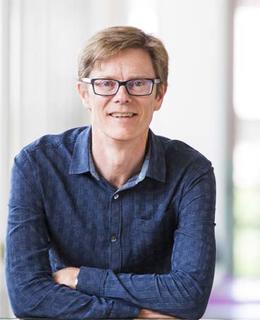
Dr. Bob Brennan
Positions
Professor
Schulich School of Engineering, Department of Mechanical and Manufacturing Engineering
Contact information
Phone number
Office: +1 (403) 220-5798
Background
Educational Background
B.S. Mechanical Engineering, University of Calgary, 1984
Doctor of Philosophy Mechanical Engineering, University of Calgary, 1997
Research
Areas of Research
The overall goal of this research is to develop an engineering design-based “spine” of courses and learning modules, incorporated into all engineering programs that will develop professional skills in our students. The objective for the Chair in Design Engineering is to facilitate positive change in the way engineering programs are delivered, and in particular, how professional skills are supported and developed through design experiences. Engineering design plays a key role in this vision: in addition to being a key attribute of the professional engineer, design is also a central component of the engineering curriculum. By performing engineering design activities, students are able to integrate what they have learned in traditional lecture/laboratory courses into real-world, open-ended problems, as well as practice important professional skills such as communication and teamwork.
This research focuses on developing a self-manageable and adaptive cyber-physical systems approach that meets the primary needs of modern manufacturing systems (i.e., disturbance handling, availability, flexibility, and robustness). The aim of this work is to enable manufacturing systems to quickly respond to change while maintaining stable system operation and efficient use of available resources.
Our approach focuses on design strategies to support self-management at the device level, with the specific goals of developing techniques and services for self-configuration and self-healing.
Courses
| Course number | Course title | Semester |
|---|---|---|
| ENER 570 | Automation and Controls | 2021 |
| ENME 682 | Automation and Control Systems | 2021 |
Projects
This research focuses on developing a self-manageable and adaptive cyber-physical systems approach that meets the primary needs of modern manufacturing systems (i.e., disturbance handling, availability, flexibility, and robustness). Our approach focuses on design strategies to support self-management at the device level, with the specific goals of developing techniques and services for self-configuration and self-healing. The aim of this work is to enable manufacturing systems to quickly respond to change while maintaining stable system operation and efficient use of available resources.
The overall goal of this research is to develop an engineering design-based “spine” of courses and learning modules, incorporated into all engineering programs that will develop professional skills in our students. The objective for the Chair in Design Engineering is to facilitate positive change in the way engineering programs are delivered, and in particular, how professional skills are supported and developed through design experiences. Engineering design plays a key role in this vision: in addition to being a key attribute of the professional engineer, design is also a central component of the engineering curriculum. By performing engineering design activities, students are able to integrate what they have learned in traditional lecture/laboratory courses into real-world, open-ended problems, as well as practice important professional skills such as communication and teamwork.
In recent years, the engineering education community has come to recognize the value of threshold concepts and the important role that they play in both teaching and student learning . In particular, threshold concepts align well with a student-focused approach to teaching and learning by providing instructors with the opportunity to reflect on what is taught, why it is taught, and how and when it is taught . However, the identification of threshold concepts in undergraduate engineering curricula has proven to be a difficult process. One of the key problems with this process is that, despite threshold concepts being related to how disciplinary knowledge learned by students, the role of identifying threshold concepts has predominantly been left to the disciplinary experts (i.e., academics) who have long-since traversed the thresholds. To properly identify threshold concepts, transactional curriculum inquiry is required that involves all stakeholders. This project focuses on developing a transactional curriculum inquiry-based process to identifying engineering threshold concepts and supporting a more student-focused approach to teaching and learning in undergraduate engineering. We propose developing an agent-based modelling (ABM) software tool that will facilitate a dialogue between instructors, students, curriculum developers, and members of the engineering professional community.
Artificial intelligence is being increasingly used for accessibility and inclusivity, including technologies such as text summarization, real time captioning, machine translation, and built-in libraries of idioms and phrases to assist with writing. The primary question that guides this research is: What are the ethical implications of artificial intelligence technologies for teaching, learning, and assessment?
Collaborators:
- Sarah Elaine Eaton
- Helen Pethrick
- Beatriz Moya
- Jonathan Lesage
- Bob Brennan
- Jason Wiens
- Brenda McDermott
Awards
- Canadian Engineering Education Association Fellowship, Canadian Engineering Education Association. 2019
- Geoscientists Canada Fellowship (honorary), Geoscientists Canada. 2013
- Engineers Canada Fellowship, Engineers Canada. 2011
- Schulich School of Engineering Service Excellence Award, 2011
Publications
Are you the profile owner?
Login to edit.
